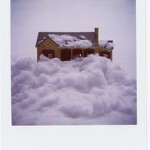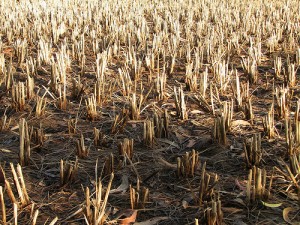 The greater Boston metropolitan area is expected to receive another 3 inches of rain from the current storm system. This is on top of the 8-10 inches of rain that fell a little over one week ago which caused extensive flooding in cities like Waltham and Quincy. The Boston Globe reported today that during the last deluge, the Massachusetts Water Resources Authority released 15 million gallons of raw sewage into Boston Harbor due to system overload. The Agency reported it hopes to not have to resort to similar action this time around, but is leery if the rain continues into the morning. On average, Boston receives about 4 inches of precipitation in the month of March (daily records); which was satisfied by last week’s storm. While one cannot unequivocally link climate change to any exceptional weather patterns, one cannot rule out the possibility either; climate change is said to increase storm intensity, particularly around coastal regions.
The greater Boston metropolitan area is expected to receive another 3 inches of rain from the current storm system. This is on top of the 8-10 inches of rain that fell a little over one week ago which caused extensive flooding in cities like Waltham and Quincy. The Boston Globe reported today that during the last deluge, the Massachusetts Water Resources Authority released 15 million gallons of raw sewage into Boston Harbor due to system overload. The Agency reported it hopes to not have to resort to similar action this time around, but is leery if the rain continues into the morning. On average, Boston receives about 4 inches of precipitation in the month of March (daily records); which was satisfied by last week’s storm. While one cannot unequivocally link climate change to any exceptional weather patterns, one cannot rule out the possibility either; climate change is said to increase storm intensity, particularly around coastal regions.
Tag Archives: weather
Stop and smell the crocuses
 If you’re looking for some means of enjoying the fine weather that is expected this weekend, you might consider taking the commuter rail to Salem and checking out the Trash Menagerie, followed by a stroll along the water front.
If you’re looking for some means of enjoying the fine weather that is expected this weekend, you might consider taking the commuter rail to Salem and checking out the Trash Menagerie, followed by a stroll along the water front.
Or, if you’d rather not travel so far, consider the public art along the Boston Harbor Walk. The Neponsett River Park area in Dorchester is an under-appreciated (even if art-free) treasure. Note that although the pages for each neighborhood appear blank, a list of specific areas is given in the left-hand menu.
On the subject of stopping to take a look around you, the New Visions exhibition of up-and-coming local artists includes local photographer Mark Peterson. His Scaryville collection of industry along the Mystic River will be displayed, and it can also be previewed online.
Two weekends hence, another local non-profit is hosting a small environmental film festival.
Coping with the Cold
 If you’ve tried all of the of the recent tips on how to keep warm while saving energy, but are still shivering in your boots (you may or may not be wearing boots), then here are some more resources to check out: Continue reading
If you’ve tried all of the of the recent tips on how to keep warm while saving energy, but are still shivering in your boots (you may or may not be wearing boots), then here are some more resources to check out: Continue reading
Home Audits rise and Fall with the Seasons
We here at the Cambridge Energy Alliance have noticed that we have “busy season” when it comes to interest in Home Energy Audits. As the weather starts to get colder, people tend to start thinking more about ways they can keep their home warm and save money on their heating bills.
The follow graph shows the relative interest in the search term “Home Energy Audit” from people in the Boston Metro Area over the last year.
As you can see, interest peaked this year in January-February 2009 right around the coldest part of Winter. Unfortunately with the increased interest, comes delays in scheduling energy audits because too many people want audits all at the same time. Fortunately, there is still time this season to get an energy audit before the rush is fully on. You can learn more about energy audits in Cambridge by clicking here. You can learn more about Energy Audits generally and in Massachusetts by clicking here.
Wacky Weather
 This June, in Cambridge, Massachusetts, we experienced one of the worst, wettest, stretches of summer weather that any of us can remember. By the end of the month, Boston.com was even jokingly providing instructions on how to build an ark.
This June, in Cambridge, Massachusetts, we experienced one of the worst, wettest, stretches of summer weather that any of us can remember. By the end of the month, Boston.com was even jokingly providing instructions on how to build an ark.
But as terrible as we had it here, halfway across the world, Uganda was having it even worse. Instead of praying for a bit of sun each morning, the Ugandan rainmakers held sheep sacrifices in an effort to appease the rain god, Ekipe. This has been the fourth consistent year that there has not been enough rain for Nassapir’s harvests – and millions will go hungry. While the locals describe the weather as “very strange”, others would identify it global climate change.
Global aid agency Oxfam reports that all over the world, impoverished communities are being hit hard by the effects of climate change. Farmers from 15 different country’s in Africa, Asia and Latin America have reported seasons to be shrinking in number and variety. Because there is not international funds to help these communities cope with the challenges climate change will bring, millions of the world’s poorest people will soon find themselves in an even tougher situation.
While the United States is certainly not an impoverished nation, this does not mean that American citizens need not worry about the reality of bad harvests reaching our shores as well. With the layering problems of water scarcity, climate changes, and the economic crisis, U.S. Fields, too, are going dry.
